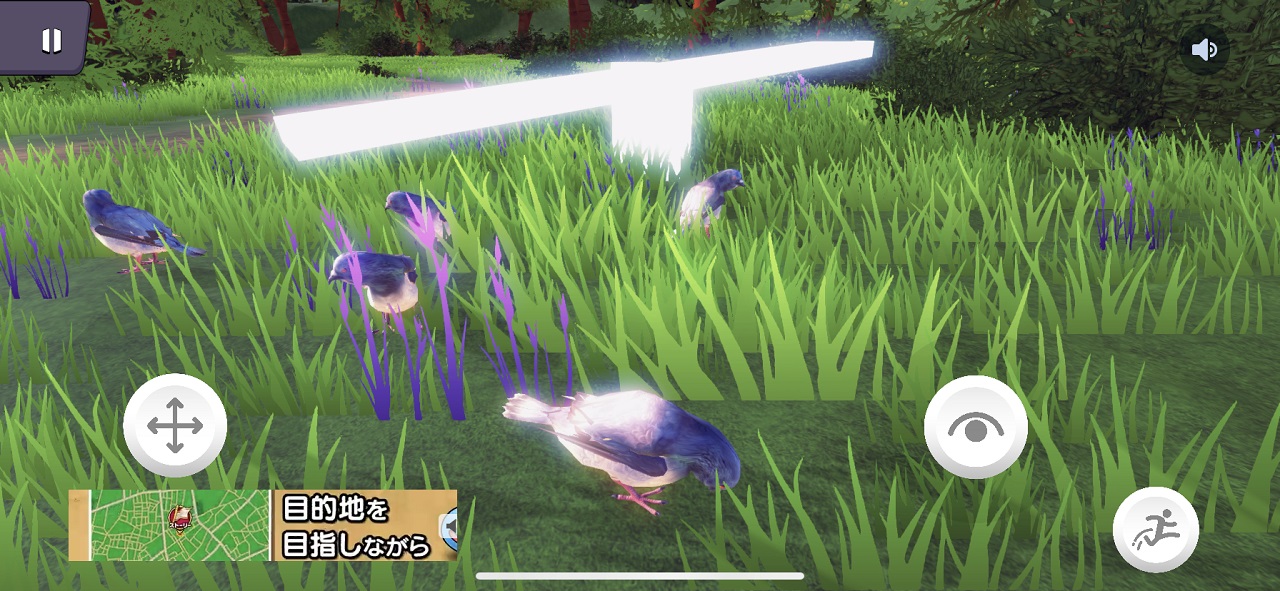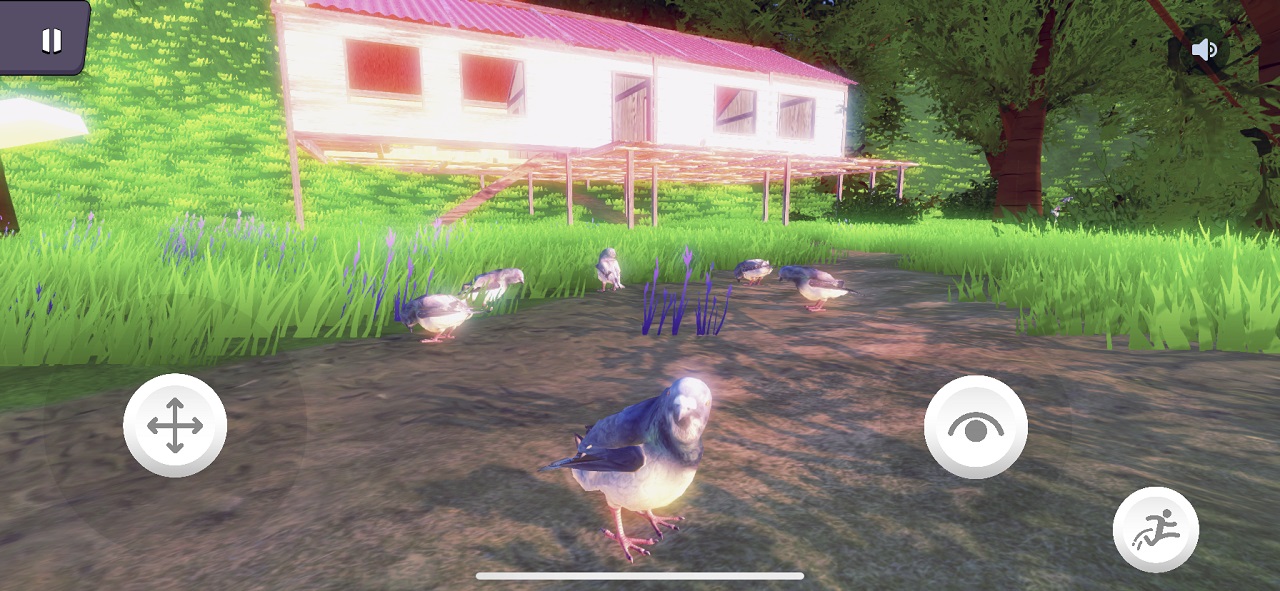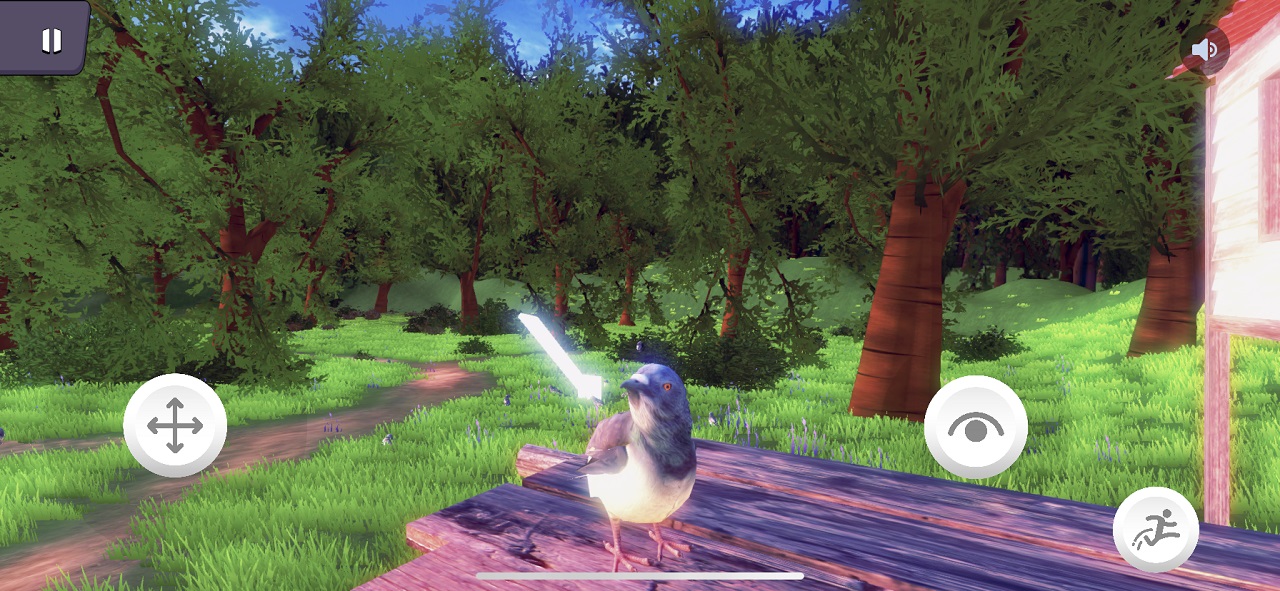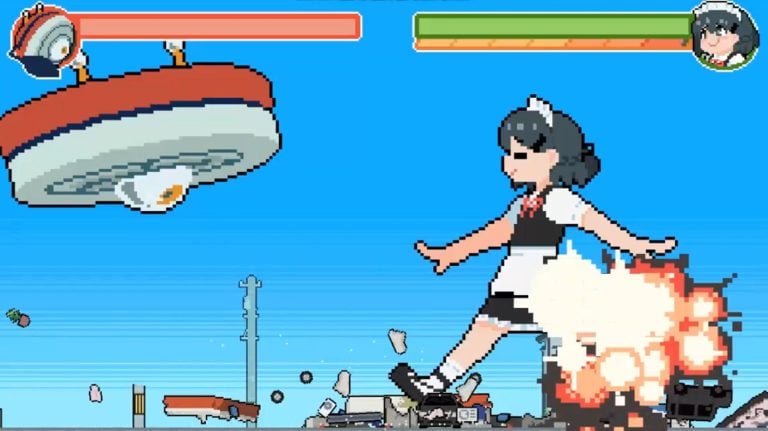Japanese game developer Factory has released Hatoverse on iOS and Android in Japan. The iOS version came out on April 7, followed by the Android release on April 10. The game is free to download on both platforms.
Hatoverse is a third-person online multiplayer game where you play as a pigeon and have a relaxing time in a virtual space void of objectives. The word “hato” means pigeon in Japanese, so the game’s title can be translated to something like Pigeonverse.
The virtual space is pretty small, and the pigeons are limited to just moving around and jumping. They can’t even fly. There’s a seesaw that you can use and some chickens that barely move, but other than that, there’s nothing interesting about the world. It’s a bare-bones pigeon sim, but the game is gaining traction in Japan due to the developer’s humorous yet somewhat clever marketing approach.
The developer Factory released the video above alongside the game’s launch. It’s titled the Hatoverse conference 2022, an obvious parody of western tech companies’ conferences/keynotes. In it, one of the developers, guised as a pigeon head mask-wearing Pigeon Gentleman, jokingly admits that they wanted to riff on the metaverse while the concept is still trending.
The Pigeon Gentleman explains that Hatoverse provides a virtual space devoid of conflict or inequality since there’s no verbal communication tool or an objective. A peaceful digital world where everyone is truly equal, and your gaming skills don’t matter. There’s no bullying via text/voice chat, no jealousy towards other players’ cosmetic items, and no leaderboards to worry about. That sounds like a utopia in theory, but you could say it’s also a sarcastic way of describing a game with a lack of meaningful content. Even the developer admits, “I got bored of the game in 2 minutes.”
This humorous video caught the attention of some press outlets in Japan, notably the Gamecast blog. They played along with the joke by exaggeratingly explaining how the game isn’t peaceful at all. The blog shared their experience with the game saying how people were bullying the chicken NPCs by jumping on top of them, and as for the seesaw, some players were camping out on one side, preventing others from using it. Gamecast cynically concluded that no matter how drab and empty a place might be, people will always find a way to entertain themselves and differentiate themselves from others.
Gamecast’s tweet about the game has been retweeted 15,000 times as of this writing, catching the attention of many gamers in Japan. Some responded by saying that the game sounds like a social experiment, while others mentioned that the lives of actual pigeons aren’t that equal at all.
Additionally, the maximum number of concurrent players that can join the game was capped at 20 at launch, so managing to play the game was a hurdle on its own. Although the game’s official Twitter account announced that streaming is allowed, users replied by saying they can’t stream it even if they wanted to, since they can’t play the game in the first place. The two digit upper limit of concurrent players and the inevitably long queue time led to even more articles to be published.
The limit has since been raised to 30 in a recent update, so it’s slightly easier to get into the game now. It is set likely due to a technical (or financial) limitation rather than a marketing strategy, but either way, it ended up helping the game go viral.


What started out as a riff on the metaverse trend ended up making the rounds on Japan’s social media. But as the developers themselves have said, it’s not a game you can keep playing for a long time. They do offer other pigeon-related games in Japan, though, such as Hato Jump and Sexy Hato Jump, so there’s no shortage of that.
While their games are simple and casual, their marketing approach is not. I wonder what these pigeon-obsessed developers will do next to surprise and delight us.





